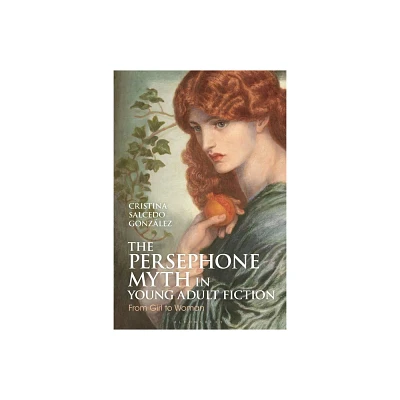Home
Cyborg Saints: Religion and Posthumanism in Middle Grade and Young Adult Fiction / Edition 1
Loading Inventory...
Barnes and Noble
Cyborg Saints: Religion and Posthumanism in Middle Grade and Young Adult Fiction / Edition 1
Current price: $200.00


Barnes and Noble
Cyborg Saints: Religion and Posthumanism in Middle Grade and Young Adult Fiction / Edition 1
Current price: $200.00
Loading Inventory...
Size: OS
*Product Information may vary - to confirm product availability, pricing, and additional information please contact Barnes and Noble
Saints are currently undergoing a resurrection in middle grade and young adult fiction, as recent prominent novels by Socorro Acioli, Julie Berry, Adam Gidwitz, Rachel Hartman, Merrie Haskell, Gene Luen Yang, and others demonstrate.
Cyborg Saints: Religion and Posthumanism in Middle Grade and Young Adult Fiction
makes the radical claim that these holy medieval figures are actually the new cyborgs in that they dethrone the autonomous subject of humanist modernity. While young people navigate political and personal forces, as well as technologies, that threaten to fragment and thingify them, saints show that agency is still possible outside of the humanist construct of subjectivity. The saints of these neomedievalist novels, through living a life vulnerable to the other, attain a distributed agency that accomplishes miracles through bodies and places and things (relics, icons, pilgrimage sites, and ultimately the hagiographic text and its reader) spread across time.
Cyborg Saints
analyzes MG and YA fiction through the triple lens of posthumanism, neomedievalism, and postsecularism.
charts new ground in joining religion and posthumanism to represent the creativity and diversity of young people’s fiction.
Cyborg Saints: Religion and Posthumanism in Middle Grade and Young Adult Fiction
makes the radical claim that these holy medieval figures are actually the new cyborgs in that they dethrone the autonomous subject of humanist modernity. While young people navigate political and personal forces, as well as technologies, that threaten to fragment and thingify them, saints show that agency is still possible outside of the humanist construct of subjectivity. The saints of these neomedievalist novels, through living a life vulnerable to the other, attain a distributed agency that accomplishes miracles through bodies and places and things (relics, icons, pilgrimage sites, and ultimately the hagiographic text and its reader) spread across time.
Cyborg Saints
analyzes MG and YA fiction through the triple lens of posthumanism, neomedievalism, and postsecularism.
charts new ground in joining religion and posthumanism to represent the creativity and diversity of young people’s fiction.


















